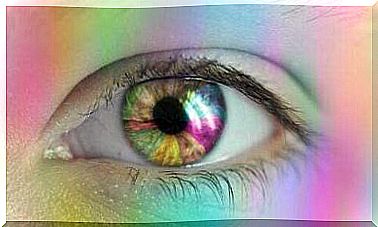Difficulty Socializing, What Is It?

«I find it difficult to relate to people, is there something animating it in me? What problem do I have? ” These are frequently asked questions in those who have difficulty socializing, making friends, finding a partner or being assertive in any context. Beyond what one might think, it is a fairly common problem.
Agatha Christie is said to have had a deep fear of appearing in public and giving interviews. Jorge Luis Borges has always been extremely shy, to the point of being replaced by his friend Oliverio Girondo in any public event.
None of them were good at socializing, and in truth they didn’t even care. They simply preferred their private spaces, their creative everyday life. Those who have difficulty socializing, on the other hand, often would like to do so. He longs for better interpersonal skills to move more resolutely in college, at work, in entertainment venues and where there are people.
Thus, while figures such as those mentioned and others, including Albert Einstein, the writers Cormac McCarthy or Harper Lee, showed evident traits of shyness; not all people who have difficulty socializing are shy. Let’s try to understand what lies behind this behavior.

Difficulty in socializing: the causes
When a person asks himself why it is difficult for him to relate to others, this is usually due to the fact that today ‘s society overly rewards extroversion ; openness of character and those social figures endowed (apparently) with a high capacity for communication and distinction are considered positively.
To support this idea, however, is in a sense a mistake. Both introverts and extroverts can be socially successful. In addition to this, there are extroverted personalities with obvious socialization problems and even difficulties in establishing relationships.
We specify this because the difficulty in socializing effectively and happily does not always depend on shyness or introversion. These factors fuel it, of course, but they are not the only ones. Let’s analyze the causes in more detail.
Internalized relational rules in childhood
Our relationship skills or difficulties are closely related to our childhood. Most of us have unconsciously internalized the relational rules transmitted by the primary reference figures. If they haven’t been successful for them, they won’t have it for us either.
The same happens with communication. If our parents’ language skills weren’t well structured and they didn’t interact much with us, this will also affect us.
The presence of unaffective primary reference figures will always have an impact on the child’s verbal, emotional and behavioral skills. To the point that it is possible to see extroverted children with serious limitations in social and relational skills as a direct effect of the education received.
On the other hand, dysfunctional, authoritarian or abusive family environments, immersed in contexts with poor social contacts, also favor these relational limitations.
Psychological and neurological dimensions
Not everything originates in childhood. In times of socialization problems are psychological and even neurological. Let’s see some examples:
- Autism spectrum disorder. Within this condition we find, for example, Asperger’s syndrome which, in many cases, can even go unnoticed. This syndrome may explain why many adults experience social interaction problems.
- Anxiety and stress limit and hinder social skills.
- Some psychological conditions such as antisocial personality disorder, social phobia or agoraphobia are at the origin of this difficulty in socializing. In these cases, however, it is the person himself who deliberately escapes or avoids social contact.
Sensory processing sensitivity
At the beginning of the article we stated that figures such as Agatha Christie or Borges avoided social contacts. Their evident shyness led them to prefer more intimate environments and to avoid exposing themselves to situations that caused them stress and discomfort. Well, it is impossible to talk about socialization problems without taking into account one of the most obvious factors: shyness.
Rather than focusing on the behavioral model of the shy personality, however, it is more interesting to understand what it is motivated by. Shy people perceive the outside world differently due to the well-known sensory processing sensitivity (SPS). What is it about?
- The brains of shy people are different. On average, it takes longer to react to stimuli.
- Shy people are more introspective and reflective, which prevents them from adapting to social environments in which they need to act quickly.
- Crowds, noise, new stimuli or exposure to situations over which you have no control create stress and discomfort.
These factors make us understand that shyness also has a neurological basis. However, this does not prevent you from learning strategies to improve sociability.

How to overcome the difficulty of socializing?
We can all improve our social skills. Learning to relate to each other to enjoy interaction in any context is within anyone’s reach. You could start here:
- Look for situations in which you feel comfortable. You can use online applications and sites to search for people with common interests. It’s a good way to get to know like-minded people with whom to feel safe. Later you can also open up to different scenarios.
- Lower levels of self-need. Avoid focusing too much on yourself, on the fear of making a mistake, of not knowing what to say, of not liking it. Shift your gaze from the inside out and let yourself go, enjoy the spontaneous conversations… Don’t believe everything your mind tells you.
- Seek support from people you trust. Share your fears with the people who know you best and who can advise you.
- Learn techniques for managing stress and social anxiety.
- Strengthen your social skills : communication, assertiveness, emotion management, etc.
To conclude, there is only one aspect to underline: if the difficulty in socializing is chronic, something that we have dragged on for years and which hinders the quality of our life, it is preferable to consult a professional. There are therapies that can produce notable changes ; the breakthrough we need.









